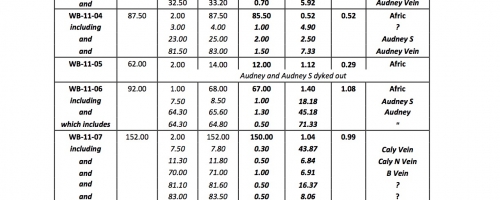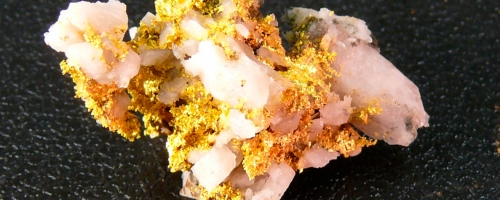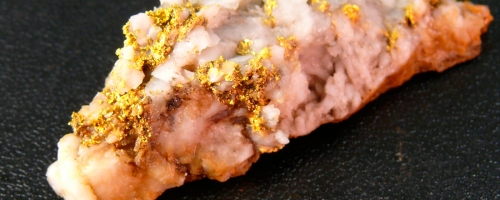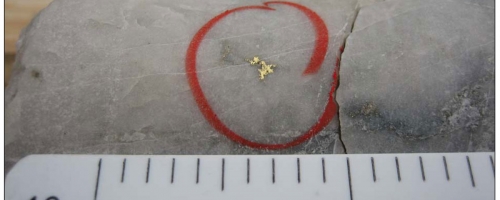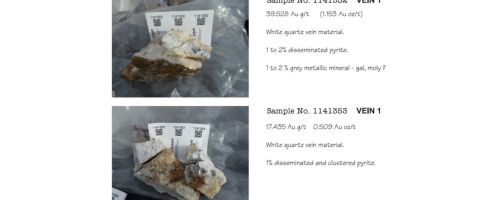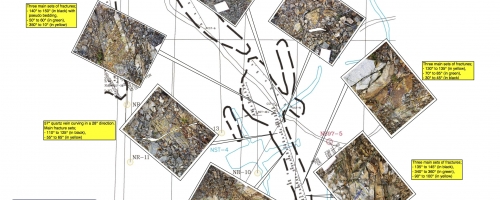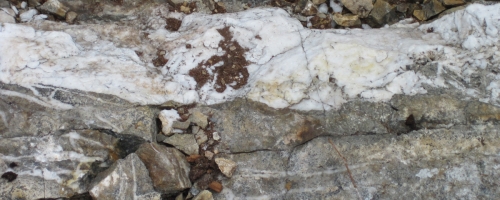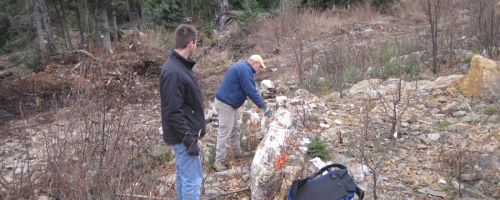Gold Mineralization
Gold mineralization on the Northshore Property occurs in a number of settings. Within the Afric Zone, which carries an historic, non-43-101 compliant geological resource of 2.0 million tonnes grading 2.20 g/t gold to a vertical depth of 150 metres, gold mineralization is associated both with quartz-carbonate veining and with extensive zones of disseminated to blebby pyrite hosted by a quartz-feldspar porphyry body. The mineralization is associated with pervasive iron-carbonate alteration associated with variable sericite and potassic alteration, the latter particularly prevalent in proximity to the syenite body. Gold mineralization and alteration is typically most heavily concentrated at the intersection of NE and NW trending structures.
Locally spectacular visible gold mineralization is observed in association with multi-phase quartz and quartz-carbonate veins located along several prominent structures throughout the property. Examples of these high-grade structures are the Audney and Caly vein systems which produced the spectacular grab samples displayed on this page. These two veins systems, the current target of exploration on the property, trend ENE and appear to be conjugate dilational structures (“ladder-type veins) located within the broader Afric Zone. Gold mineralization within these veins is commonly in the form of relatively coarse native gold mineralization. The veins can host lesser pyrite, traces of arsenopyrite, tourmaline and chalcopyrite. The veins themselves range from 10 cm to over 2.5 metres in diameter and are commonly surrounded by a number of narrower veins, veinlets and fractures which also appear to be gold bearing.
The high-grade quartz veins which host the historic Northshore mine are roughly east-west trending, roughly parallel to the trend of the Afric Zone. These veins have seen relatively limited modern exploration but in general terms appear similar to the Audney and Caly systems.
Gold mineralization is also found on the property associated with base metal sulphide veins which locally carry strongly elevated silver values. Previous workers have suggested that this style of mineralization has a different origin and may be related to volcanogenic massive sulphide mineralization known elsewhere in the sequence outside the property which includes the former producing Winston Lake Zn-Cu-Ag-Au system located north of the town of Schreiber.
Drilling completed by partner GTA Resources and Mining Inc. on the property since 2011 has indicated that certain of the high-grade vein systems exhibit good lateral continuity and has led to the identification of additional, high-grade veins which are not exposed in outcrop.
